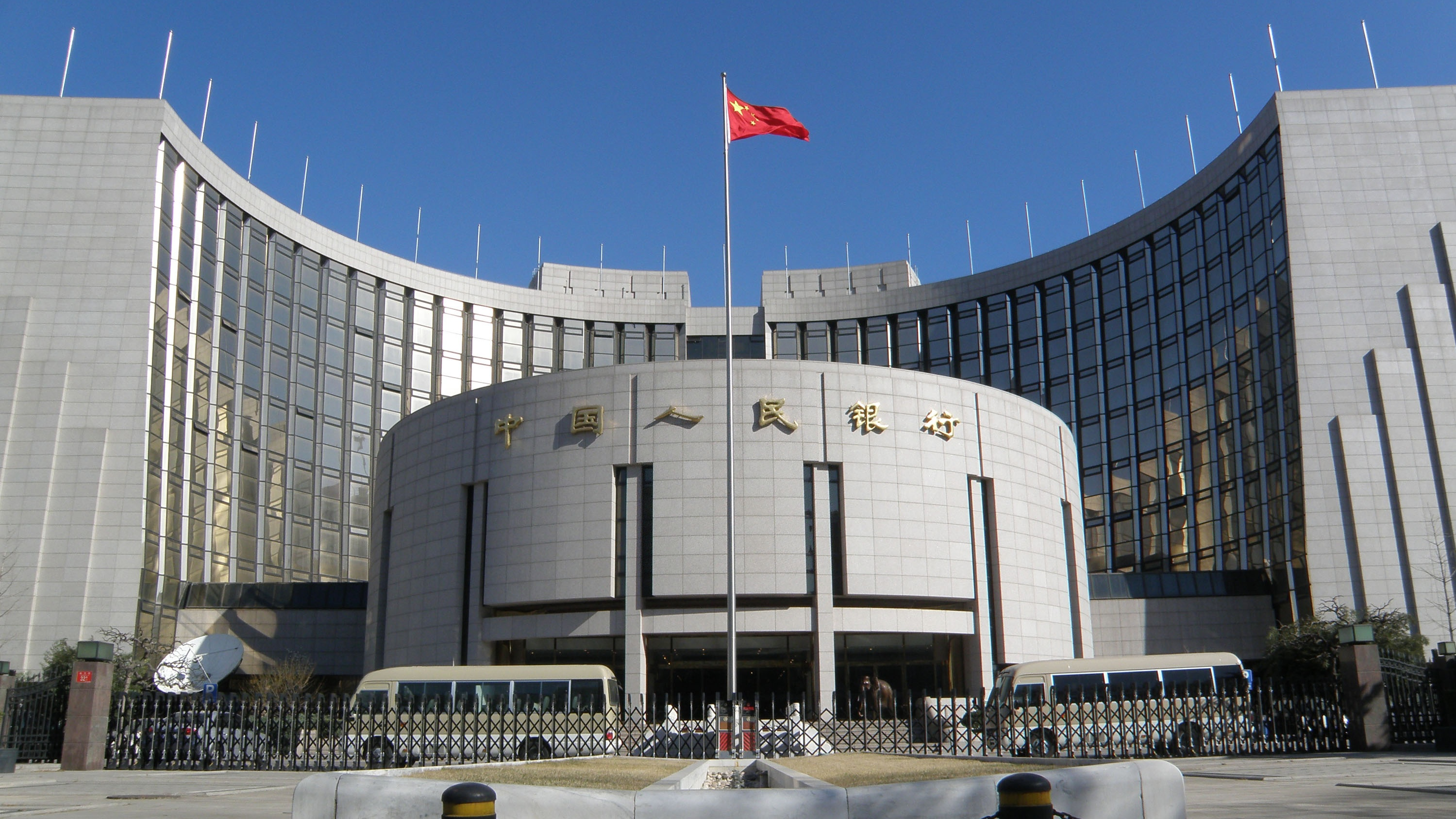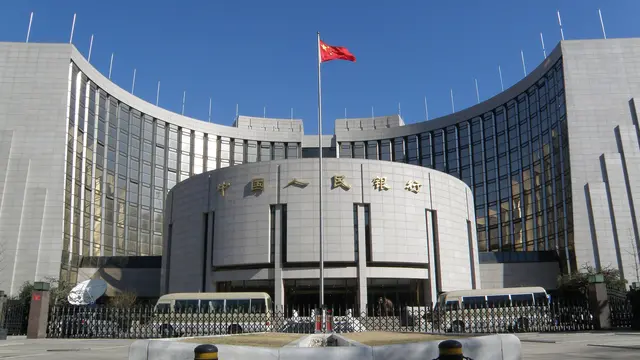
The People's Bank of China headquarters in Beijing. /Xinhua
**Editor's note: **Matteo Giovannini is a finance professional at the Industrial and Commercial Bank of China in Beijing and a member of the China Task Force at the Italian Ministry of Economic Development. The article reflects the author's views, and not necessarily those of CGTN.
The coronavirus pandemic has accelerated an historical transformation in global markets provoked by the activism of technological companies that, leveraging their massive size and with a growing level of influence in society, have started to expand their footprint turning to financial services.
The immediate consequence has been a generalized increased level of legislative intervention and investigation carried out by financial authorities worldwide. In this context, China has demonstrated to lead the way with a very pragmatic approach due to the concrete risk that the concentration of resources and power in the hands of few entities could lead to dangerous market distortions.
Therefore, the recent public announcement made by the People's Bank of China (PBOC) does not represent a surprise. The introduction of a new batch of rules, effective from May 1, targets financial holding companies and is basically aimed at preventing operational risk. The decision follows the requirement for Ant Group, and possibly even for Tencent, to establish a financial holding company that includes all non-core businesses such as banking, insurance and payment services.
According to the new regulation, senior executives and board members of financial holding firms are required to have at least eight years of financial industry experience under their belt, and the time spent in the same role at a holding company will be limited.
The resolution to set a certain level of professionalism as an entry barrier for holding top positions in financial holding firms is, in my view, an essential factor in any type of industry and not only in terms of risk control but also in building public trust. This is even truer for financial services considering the degree of sensitivity of the sector and the constant mobilization of a large amount of money and information in daily transactions.
If someone aims to become a doctor or a lawyer, or an engineer, he cannot simply start to practice the profession but must go through deep academic training followed by an adequate apprenticeship. As a result, a certain threshold in terms of expertise is built up over the years, and this aspect alone guarantees that the person is able to perform the job with a decent level of competence.
I believe that the same framework must also be true for a very complex industry such as financial services, where the interests of stakeholders are most of the times fully managed by a small number of people holding positions of extreme influence and power.

Employees are reflected on a glass panel while walking past a logo at the Ant Group Co. headquarters in Hangzhou, China, March 24, 2021. /Getty
In this sense, I don't see the new rules as an attempt to directly harm technology firms entering the financial industry arena or to preserve the status quo of a sector that is still largely dominated by state-owned enterprises. On the contrary, I simply read the decision from the PBOC as an effort to maintain the same level of access for newcomers as long as their appointed decision-makers are able to comply with the requirement of an adequate level of competence in an industry that is mainly based on skills, reputation and track record built over the years.
In other words, what the PBOC is stressing with its measures is that the focus on an accurate selection and appointment of qualified professionals within financial holding firms is the sine qua non for preserving the stability of the entire domestic industry considering the large number of critical decisions that senior executives and board members are constantly forced to make.
In addition, the new rules mention the introduction of a non-negotiable term limit of ten years in the same role for senior executives and board members. I believe that this move could well represent a concrete solution to persistent problems in corporate governance such as counterbalance the advantages of the incumbent, ensure a healthy turnover, remove potentially unproductive and uncooperative members, and secure an independent level of judgment.
In particular, by setting defined term limits, companies would benefit from a pool of senior executives and board members that always bring to table new ideas and innovation while setting boundaries serves to manage problematic board members and to prevent incumbent executives from taking advantage of long-term positions and losing focus on the real interests of the firm.
All things considered, through the introduction of a new batch of rules, China is further elevating the reputational level of its financial industry, aligning domestic corporate governance practices to globally accepted standards where requirements of professionalism and integrity are always considered as pre-requisites for any major appointment to top positions.
(If you want to contribute and have specific expertise, please contact us at [email protected].)
 简体中文
简体中文





